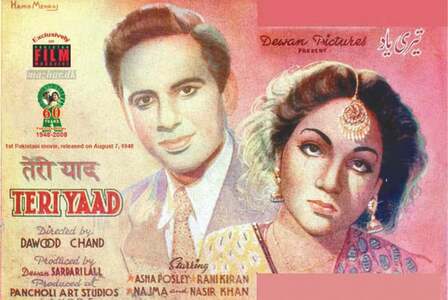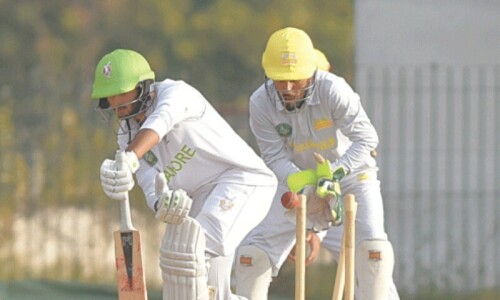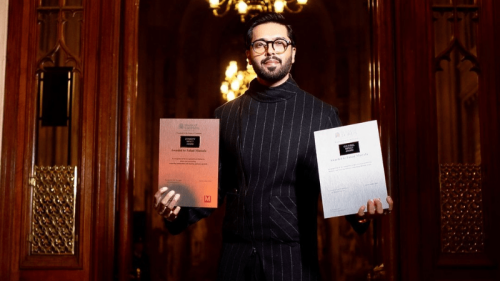
In these times of death, disease, depression and sorrow, we have lost many literary stalwarts, from Shamsur Rahman Faruqi to Shamim Hanfi in India, to Rasheed Amjad and Masood Ashar in Pakistan. The list is long and exhausting.
We also lost Masud Mufti one year ago — Nov 10 marked his first death anniversary. Mufti was a leading Urdu prose writer and columnist. He also enjoyed the sterling reputation of an upright and efficient civil servant when working with the government of Pakistan for three and a half decades. Born in Pakpattan in 1934, he was raised in his native city of Gujrat and educated in Lahore and Cambridge. He was also a prisoner of war for three years after the 1971 Indo-Pakistan war that led to the creation of Bangladesh.
In a prolific career spanning over 60 years, Mufti published five reportages/ memoirs, five collections of short fiction, one novel, a book each of plays and humour and a journal. Although we had a number of divergent views in understanding South Asian history, I always found him to be a clean, transparent and decent man, who believed in dialogue and debate.
His writings on the fall of Dhaka were insightful and my first introduction to his work. I last met him a few months before his passing in early 2020; Covid-19 restrictions prevented us from meeting again. Do Minaar [Two Minarets] is his final book that came out in 2020. In the foreword, Mufti insists on calling it reportage and not a memoir. To me, the book seems to fall between the two genres of memoir and reportage.
Out of the two towers after which the book is titled, and to which references are made time and again in the text, one small tower symbolises Mufti’s own self and the other, much larger, tower represents Pakistan. According to Mufti, his own small tower has saved its entity while voluntarily merging into the larger tower.
Using a combination of both lucid and metaphorical prose, Mufti begins with recollections of his childhood. Overall, he offers a fairly balanced analysis of colonial violence and exploitation on the one hand and, on the other, the good governance at the local level under the British rule.
He goes on to discuss, at length, the significant reformism of the Khaksar Tehreek under Allama Inayatullah Mashriqi in shaping the pre-Partition modern Muslim mind. He praises the character building, social work, simplicity and devotion of Allama Mashriqi and a million of his disciples across united India.
However, during and after his sympathetic assessment of Mashriqi and his ordeal at the hands of colonialists, his writings and reform movement, Mufti determinedly distances himself from an orthodox and exclusive view of Islam — a view nurtured and propagated by most clerics for material and political gains from that time until now.
Consequently, in today’s Pakistan, we see the rise and rise of violent religious extremism.
Later on, Mufti — while remaining a staunch fan of Mashriqi — politically shifts his allegiance to Quaid-i-Azam Mohammad Ali Jinnah and his All India Muslim League. Mufti is critical of the role the Indian National Congress played in pushing the Muslim League towards its demand for a separate homeland and quotes from both Jinnah and Jawaharlal Nehru, where they spoke of how Partition could have been avoided had Congress understood the situation differently.
Here, Mufti’s views on the subject of Partition come closer to those of historian Ayesha Jalal. However, I find a contradiction: he supports the Two-Nation Theory, and then says Partition could have been avoided had Congress not been Hindu-dominated and prejudiced. Besides this, another question also remains unresolved: if Indian Muslims were one nation in 1947, how have they become two separate nations since and, furthermore, three different nations since 1971?
Another contradiction is between Mufti’s social inspiration and political allegiance. Mashriqi and the Khaksars opposed Partition on communal lines. A major massacre of Khaksars was carried out by the British government on March 19, 1940, in Lahore — four days before the Lahore Resolution was presented in the congregation of the All India Muslim League. Was that merely a coincidence? It may or may not have been. That needs to be further investigated.
Whatever the circumstances in which Pakistan came into being, I agree with Mufti that there were hopes, aspirations and a dream. There were people in the beginning, generations including Mufti’s and those elder to him, who wanted to see an inclusive, prosperous, democratic and peaceful Pakistan. And although late, the parliament did promulgate a constitution of the republic in 1956.
Mufti has done a scathing review of how the train of Pakistan was derailed in 1958 when Gen Ayub Khan declared the first martial law. The writer has done a charged and provocative analysis of the perpetual loss of values and character among those who ruled Pakistan since then.
Since 1958, the country has been in the hands of an exploitative elite that includes feudal politicians, religious clerics and ambitious generals, beginning from Gen Ayub. As in his earlier work, Mufti has again mentioned the conditions preceding 1971 and places the primary responsibility of the debacle on the West Pakistani ruling junta of the time.
Mufti has also fought the case for the bureaucracy which the British left behind. He has tried to explain how different actions by successive governments turned an efficient bureaucracy from public servants into bootlickers of the powers-that-be. He considers multiple reforms and retrenchments from civil service between 1959 and 1972 as deadly blows to a functioning system.
The narrative is analytical, but contains interesting anecdotes, poetry, parables and some verses from the Holy Quran. Do Minar is an interesting book that raises pertinent questions for us to introspect on, and embodies the heartfelt pain of the writer on the shattering of his dream.
The columnist is a poet and essayist. He recently edited Pakistan Here and Now: Insights into Society, Culture, Identity and Diaspora. His latest collection of verse is No Fortunes to Tell
Published in Dawn, Books & Authors, November 21st, 2021















































Dear visitor, the comments section is undergoing an overhaul and will return soon.